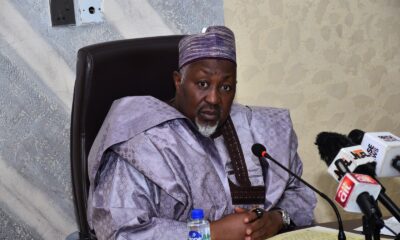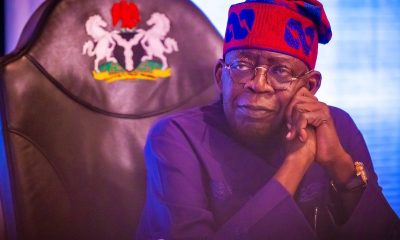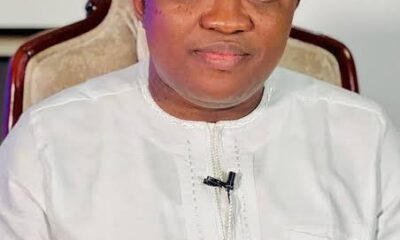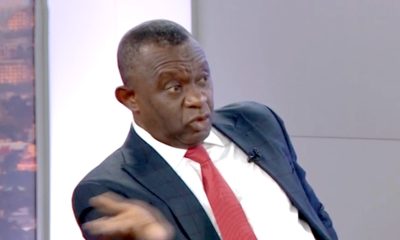Features
Nigerians expecting much from an ineffective Legislature
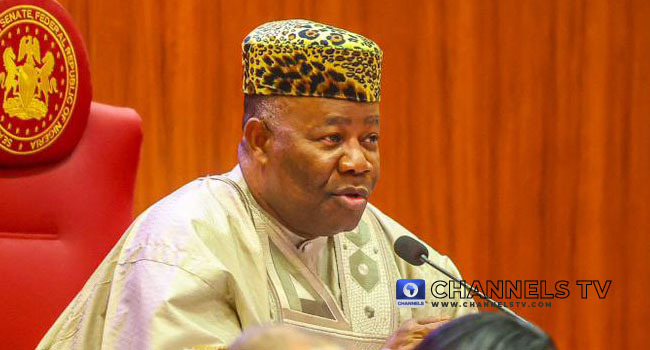
A legislature that is alive to its roles and responsibilities is a symbol of hope, a shield and a voice for the people. It is marked by robust debates, strict commitment to checks and balances, and deliberate accountability to the people. Also, it confers legitimacy on the government because governance is productive and the citizens are fulfilled.
However, in developing nations, the legislature is defined by weak institutional capacity. It faces the challenges of executive dominance, public trust deficit, poor democratic culture manifesting as a weak electoral system and disrespect to democratic tenets and then disruptions through elections, leading to a high turnover of legislators.
And, central to all these issues are a weak constitution, a low level of morality in politics as well as poor knowledge of the duties of the parliament.
To begin with, Nigeria’s situation validates the assertion that any constitution midwifed by the military is as faulty as it is anti-democracy. It does not offer the legislature the necessary support for true independence and effective supervision of the executive.
For example, mere legislative refusal of consent cannot stop the executive from borrowing and or engaging in non-budgeted expenditures. Equally, the much-touted powers to override the presidency on critical issues exist merely on paper in the same manner that executive appointees can hold offices without legislative confirmation. And again, legislative summons and resolutions are brazenly ignored because the legislature does not possess the instruments to effectively enforce compliance.
So evidently, the executive is already empowered by the constitution to dominate the legislature. And as noted earlier, institutional capacity is the missing link between an effective parliament and the rest. It is a product of a trained and motivated workforce supported by a favourable operating environment which in turn is a function of adequate funding.
But in Nigeria, the legislature is incapacitated and depends on the executive for operational existence. Beyond executive dominance and disrespect, lack of financial autonomy chiefly erodes overall legislative effectiveness. Among others, capacity building is stunted, the work environment is unconducive, representation suffers and legislative committees majorly rely on MDAs for logistics in the discharge of oversight functions. Meanwhile for over two years now, the national assembly chambers are closed down for repairs, restricting the lawmakers to a temporary arrangement for plenary.
Similarly, most bills passed by the legislature, especially the ones it originates are not accented to and the resolutions arising from motions are utterly disregarded. Even the legislative agenda, despite how fantastic, would always remain a dream except the executive offers the needed impetus. Yes, the executive determines the dimension of budget implementation which explains the perceived lop-sidedness in infrastructural development across the country.
Additionally, there are interferences in the affairs of the legislature by the political party. Either by way of promises of reward or threats of sanction, the legislators are readily blackmailed to influence their actions and conduct.
Buoyed by the weak electoral system, the state governors decide the political fates of the legislators using the party structures and deployment of mob rule. Any lawmaker whom the governor does not endorse is as good as gone because the party will not nominate them as candidates for future elections. Re-election tickets, developmental project locations as well as appointment of relatives and loyalists into positions are employed as baits to keep the legislators in line. Also, despite the popularity of laws made by the national assembly regarding the matters on the concurrent list, the governors railroad the state assemblies into undermining the federal legislature, for political expediency.
Hence, when a legislator is confronted with the grim prospects of political extinction, they helplessly ‘play along’ to survive. And inferentially, the executive influences the choices of legislative leadership through this strategy. Now with these, why would ineffective parliaments not thrive?
Then again, the withholding of public support and cooperation which also undermines the effectiveness of the legislature, is traced to two major factors. While one is the personality of some lawmakers the other is misplaced public expectations sequel to limited understanding of the preserves of the parliament.
Whereas legislators are expected to be morally upright and beyond reproach, the actions and conducts of some account for the huge public trust deficit plaguing the legislature. There are those lacking in character, the ones reputed for underperformance and the others who embody politics with bitterness or bad-loser syndrome. This last category adopts desperation in their quest for power and would always seek to undermine every electoral outcome that does not suit their expectations, despite established credibility. In political contests, they ‘must’ either have their way or rock the boat.
Yet unfortunately, the legislature is corporately subjected to collective labelling and the individual liberties of the entire legislators are serially violated, thus deepening the institutional ineffectiveness.
Furthermore, and exploiting the limited public knowledge of the workings of the legislature, the vulnerable are manipulated against the legislators. Driven by a self-seeking agenda including a narrow political mentality, the elites orchestrate subjective narratives aimed at lowering the public esteem of the parliament. The impression roundly created is that the legislature does little or nothing to justify its expenditure. Also, smear campaigns are sponsored against the legislative leadership of which the executive arm is principally complicit. Because they control the media, they determine what the people know. The media is made to focus mainly on the downsides to generate negative perceptions of the legislature. Again, the parliamentarians are visited with varied demands that are motivated by the sense of entitlement wherein the constituents assume that their personal needs must be met by the representatives irrespective of the magnitude. And instructively, this is sustained because the less informed masses rate the legislators based on projects or contracts attracted and the amount of money doled out among other direct socio-economic benefits.
Equally, there are assessments informed by the quantity of legislation rather than the quality, but factually, the advent of the internet has had a diminishing effect on legislative outputs. It has drastically affected policy formulation processes such that the core legislative duties are now shaped by external dynamics. Global trends, rather than the legislature, now determine governance policies. What happens in one country affects other countries. Borrowing and international trade agreements today dictate the pace of development. Consequently, there is a prevailing dearth of home-grown socio-economic legislation, especially for a country like Nigeria that ‘must’ borrow to fund its budget. And by this again, the legislature is unarguably anything but effective.
Therefore in building our expectations, convinced that an effective parliament is fundamental to the legitimacy of government, we have to recognize the peculiar challenges confronting the fledgling legislatures. In our craving for a democratic institution that truly represents the interests of all citizens, there should be a corresponding clamour for a viable constitution drafted through an all-inclusive process. Again, there should be a reawakened consciousness for a long-term commitment to building a culture of democracy and political tolerance. We should acknowledge that past mistakes occasioned by bad leadership account for our present socio-economic and political predicaments. The problem of Nigeria is certainly not the legislature alone. Particularly, we should realize that a fair assessment of the overall performance of the legislature is achieved only when one considers the rate at which the executive respects legislative resolution and summons. A legislature that is roundly disparaged cannot be effective or deliver optimally.
Then importantly, if we cannot resist the temptation to compare, we should be objective by always acknowledging that the human and financial resources available to the executive far exceed those of the legislature. We should also admit that for each arm of government, there are statutory allowances, including vehicles, yet there is always an orchestrated public outcry trailing that of the legislature. We should be persuaded that de-marketing the legislature hurts the country and again that sensational reportage is a threat to democracy the world over. Rather, we should cultivate good relationships with our representatives to truly guide them towards serving the national interest.
And now specifically, the legislators should be seen to be above board by truly representing the people and also shunning every unethical conduct notably traits of politics with bitterness. They should not take the people’s mandate for granted. They should purge themselves of mutual suspicions and divisive tendencies. Every lawmaker should think of Nigeria first. Above all, they should realize that one does not need to hold a leadership position or be on a particular committee before one can make an impact in governance. It is not about ego or special recognition but about sacrifice and contributions to national development.
Thankfully and verifiably, the president of the senate, Godswill Akpabio, by his blueprint and actions so far has made firm statements of covenant about his passion for a regenerated Nigeria that works for all. A diligent review shows his clear understanding of Nigeria’s immediate challenge. By his agenda, the arms of government should collaborate in the overall interest of the citizenry. Beyond his age-long sense of humour and friendly disposition, Akpabio demonstrates that it takes a united and bipartisan legislature to heal the country and oversight the executive without feeling that the government is being undermined.
Hence, with open minds, may we accept his extended hands of fellowship by giving him the right opportunities to walk the talk. May we champion strong institutional capacity in favour of the parliament and through our representatives, consciously shield it against any form of derailment. Otherwise, it is the height of hypocrisy to expect much from this 10th national assembly.
Egbo is a parliamentary affairs analyst

